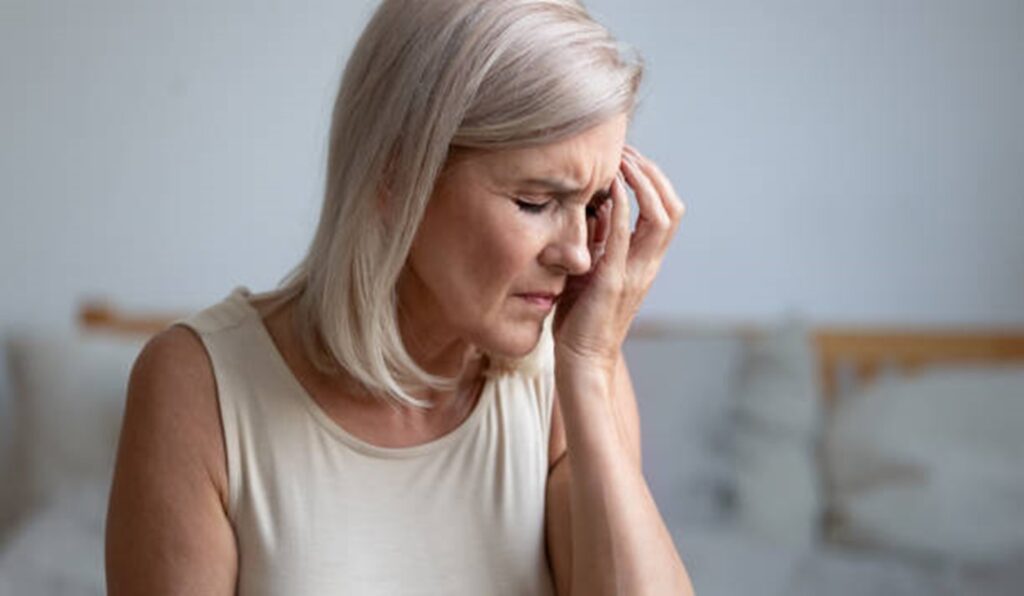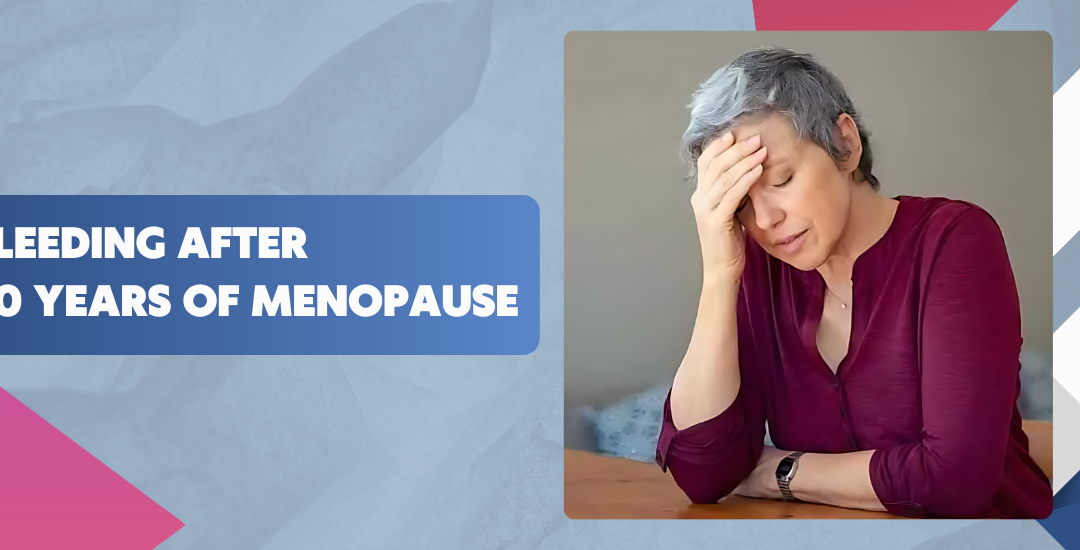Are you experiencing unexpected bleeding after 10 years of menopause? If so, you’re not alone. In India, approximately 20% of women face postmenopausal bleeding. Understanding its causes and finding the right solutions is crucial for your health and peace of mind.
Dr. Shweta Shah specializes in addressing these concerns at Tvameva Gynecology Clinic in Andheri. As a trusted gynecologist in Mumbai, Dr. Shah recognizes the anxiety and confusion such symptoms can cause. With her expertise and compassionate care, she has helped many women regain peace of mind and take control of their health.

Dr. Shah offers personalized solutions to help you achieve optimal health. She provides compassionate care and a thorough evaluation for hormonal imbalances, uterine issues, and other conditions.
Don’t let concerns about bleeding after 10 years of menopause disrupt your peace of mind. Book a consultation with Dr. Shweta Shah, a top gynaecologist in Mumbai. Take the first step towards proactive healthcare.
Let’s uncover the possible reasons behind postmenopausal bleeding after 10 years.
Why Am I Bleeding After 10 Years of Menopause?

Wondering why you’re bleeding after 10 years of menopause? Here’s what you need to know:
- Hormonal Changes:
Your body may experience fluctuations in hormone levels even after menopause. This can lead to unexpected bleeding.
- Vaginal Atrophy:
Thinning and dryness of vaginal tissues can make them more prone to bleeding, especially during intercourse.
- Uterine Polyps:
These growths in the uterus can develop post-menopause and cause bleeding.
- Endometrial Atrophy:
The uterine lining may become thin and fragile, resulting in bleeding.
- Medications:
Certain medications or hormone therapies can trigger bleeding as a side effect.
- Infection or Inflammation:
Infections or inflammation of the reproductive organs can also cause postmenopausal bleeding.
- Cancer:
Bleeding after menopause is uncommon. However, it can indicate underlying issues such as uterine or cervical cancer. It requires prompt medical attention.
Visiting a gynecologist for evaluation is crucial for proper diagnosis and timely intervention.
Seek advice from a gynecologist like Dr. Shweta Shah. Take control of your health today.
Learn about the potential risks associated with postmenopausal bleeding.
Understanding the Risks
Bleeding years after menopause does not always mean a severe issue. Yet, it is necessary to know the risks related to postmenopausal bleeding after 10 years:
- Bleeding after 10 years of menopause can indicate underlying health issues.
- It might be a sign of hormonal imbalances or uterine abnormalities.
- Ignoring such symptoms can lead to complications.
Prompt evaluation by a gynecologist is essential. Early detection can ensure timely treatment and better outcomes.
Don’t wait. Schedule a consultation with Dr. Shweta Shah to address your concerns and ensure your well-being.
Not sure when to see a doctor for postmenopausal bleeding? Discover the signs that indicate it’s time to seek professional help.
When to Seek Medical Attention?

If you experience bleeding after 10 years of menopause, seek medical attention if:
- Bleeding is heavy or prolonged.
- Bleeding is accompanied by severe pain or discomfort.
- You have a history of cancer or pelvic inflammatory disease.
Don’t delay if you notice unexpected bleeding. It could indicate underlying health issues that need addressing. Contact a trusted gynecologist like Dr. Shweta Shah for expert evaluation and personalized care.
Discover various treatments for addressing bleeding after 10 years of menopause.
Management and Treatment Options

When it comes to managing and treating bleeding after 10 years of menopause, there are several options to consider. Firstly, consulting an experienced gynecologist like Dr. Shweta Shah is essential. She will conduct a thorough evaluation to determine the underlying cause of your symptoms.
Depending on the diagnosis, treatment options may include:
- Hormone therapy to regulate hormonal imbalances.
- Medication to control excessive bleeding.
- Surgical interventions like hysteroscopy and hysterectomy in severe cases.
- Additionally, lifestyle changes can also play a significant role. They can help manage symptoms and promote overall well-being. These may include:
- Maintaining a healthy diet
- Regular exercise
- Managing stress
Remember, every individual is unique. Hence, Dr. Shweta Shah tailor treatment plans to your needs and preferences.
Ready to find personalized solutions? Schedule a consultation with Dr. Shweta Shah at Tvameva Gynecology Clinic today.
Conclusion
Addressing bleeding after 10 years of menopause requires proactive steps. Consulting Dr. Shweta Shah, known to many as the best gynecologist in Mumbai, can provide personalized solutions. With expert care and customized solutions, you can regain peace of mind and focus on enjoying life to the fullest. Don’t hesitate to reach out and take the first step towards a healthier, more pleased you.
Take control of your health and schedule a consultation today. With expert guidance and support, you can navigate this phase confidently.
Have questions about bleeding after 10 years of menopause? Find quick answers to common queries in our FAQ section.
Frequently Asked Questions:
- Can you bleed after menopause from stress?
Stress is not the primary causal factor of postmenopausal bleeding. If you have postmenopausal bleeding, you should see a healthcare expert to know the exact cause.
- What are the symptoms of a period after menopause?
Postmenopausal vaginal bleeding must be evaluated by a specialist. Symptoms may vary from a slight spotting to a heavier flow.
- What tests are done to investigate periods after 10 years of menopause?
Dr. Shweta Shah may perform several tests to identify the cause of periods after menopause after 10 years. These may include pelvic exams, ultrasounds, and hormone level assessments.
- Is it possible for bleeding after 10 years of menopause to resolve on its own?
Some cases may resolve spontaneously. Yet, it’s essential to consult a specialist for proper evaluation and guidance.
- Can bleeding after 10 years of menopause indicate cancer?
In some cases, bleeding after menopause could be a sign of endometrial or cervical cancer. It’s essential to undergo evaluation by a gynecologist to rule out these possibilities.
Reference links:

